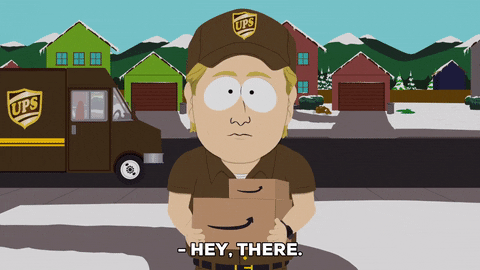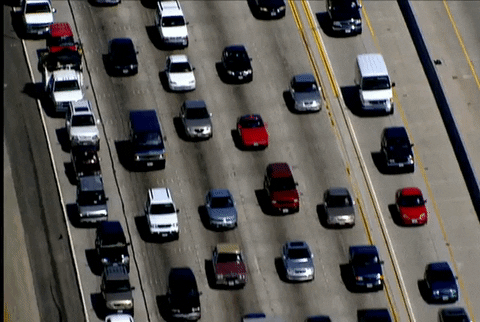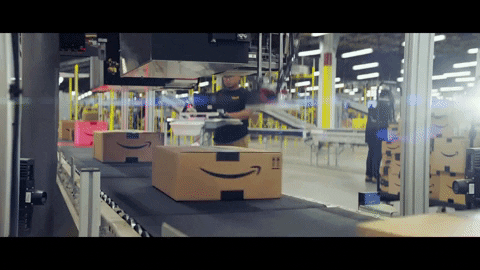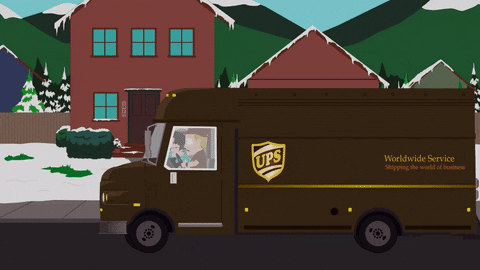In recent years, our obsession with same-day or next-day delivery has soared. Companies like Amazon and Target offer such services with a membership, while Walmart offered the service free of charge. The appeal of same-day or next-day delivery is obvious: you don't need to leave your home to go shopping and within 48 hours it will show up at your doorstep. All you've got to do is click a few buttons and voilà, you're done!
What many of us may not realize though, is the high demand for immediate delivery has had a huge impact on the world, from affecting the environment to affecting those who work for shipping giants, in the following nine ways.
1. Amazon's delivery system is putting pressure on its competitors to offer similar services

According to the research firm Rakuten Intelligence, over the past two years, the time from purchase to delivery has declined from 5.2 days to 4.3 days on average, although Amazon is still faster, at 3.2 days on average.
2. There is a huge environmental impact associated with fast delivery

The more time customers allow the company to deliver their items, the more efficient the delivery system will be, compared to same-day or next-day deliveries.
3. The theory of green e-commerce doesn't apply to shipping giants like Amazon

In comparison, grocery deliveries, which consolidates the shipment of goods to one geographic area, is more efficient. A 2012 study found that such deliveries cut down between 80-90% of carbon emissions compared to people using their own cars to shop. Yet, this doesn't apply to Amazon and Walmart delivery systems because the items come from farther away and are rarely lumped together in the same way that grocery deliveries are handled.
4. Cars have only increased in number on the road, rather than declined

Even though people are ordering online at a staggering rate, customers are still driving to stores to complete other shopping errands. Add the number of delivery vans or cars to the number of people likely to still drive to other stores, and it's clear that there are more cars on the road.
5. Forecasting consumer demand still isn't an exact science and doesn't improve delivery systems

Although machine learning is in place to compile data on where to stock inventory based on spending habits isn't perfect, but it's a start in the right direction.
6. 'Free' delivery options are forcing smaller retailers to adopt the same practices, with even more detrimental effects

People love free things, so if shipping is free, it's a sure bet that it will be selected. While a giant like Amazon may be able to still deliver a relatively large number of packages, the same isn't true for smaller retailers. Competing for the same foothold and pressured to provide free or discounted shipping, smaller retailers offering customized items like meal kits and razors, deliver more frequently but with fewer packages.
7. Underprivileged neighborhoods bear the brunt of the traffic and congestion increases

Not only are trucks heavier polluters than commercial vehicles, but the fumes produced by their diesel engines also emit four times nitrogen dioxide pollution and 22 times more particulates than petrol into the ecosystem. When trucks pick up packages at warehouses, located closer to underprivileged neighborhoods, these neighborhoods bear the brunt of the emissions.
8. Air transport is still necessary for items far away

Even though ground transportation is more efficient than air transportation, the pressure to deliver within a narrow timeframe from far away forces companies to ship items by plane. As a result, more CO2 is being released into the air and is dangerous because its heat-trapping property is partially responsible for the rapidness of climate change.
9. Lenient return policies are adding cars to the road and waste to the landfills
When customers order just to see if they need something, they inadvertently add more cars and trucks to the roads when they return an item and increase the amount of waste a single package generates.
Feeling deflated by all this information?
Yeah, I am too. It's okay because there are solutions to this problem. Here are three reasons you should choose the 'greener' route at check-out to make a positive impact on the environment. Imagine if you were part of the solution!
One option to consider is 'Amazon Day' to consolidate your orders and receive your packages on a designated day of the week. Not only does this make the whole system more efficient, but the environment wins too. Amazon will also award you with a few bucks in coupons each time you choose this delivery option. It's a win-win.
Another option to consider when ordering from other companies is to choose the 'green' option when it's available. This will help take away the shame surrounding the amount of waste generated by immediate delivery. Waiting a few extra days for things you don't need right this second is a small act of good for the environment.














